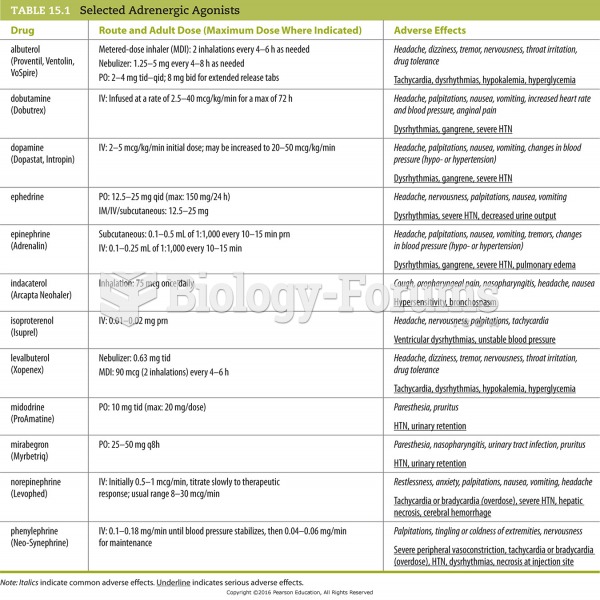Answer to Question 1
1,2,3
Rationale 1: Older adults may notice blurring of vision after receiving drops to dilate the eyes. The patient should not drive until vision is clear.
Rationale 2: Photosensitivity is a common effect, and protective eyewear should be worn.
Rationale 3: Photosensitivity is a common effect, and the patient may be more comfortable in a darkened room or with a soft cloth covering the eyes.
Rationale 4: The burning associated with these drops should be transient. It should not last for a couple of days.
Rationale 5: There is no reason for the patient to be NPO.
Global Rationale: Older adults may notice blurring of vision after receiving drops to dilate the eyes. The patient should not drive until vision is clear. Photosensitivity is a common effect, and the patient may be more comfortable in a darkened room or with a soft cloth covering the eyes. Protective eyewear should be worn in bright light. The burning associated with these drops should be transient. It should not last for a couple of days. There is no reason for the patient to be NPO.
Answer to Question 2
4
Rationale 1: Eliminating alcohol is important but not the priority outcome.
Rationale 2: Decreasing stress is important but not the priority outcome.
Rationale 3: A balanced diet is important but not the priority outcome.
Rationale 4: Achieving and maintaining optimum weight is of greatest importance when a patient has hypertension. For obese patients, a 10 to 20 pound weight loss can produce a measurable change in blood pressure.
Global Rationale: Achieving and maintaining optimum weight is of greatest importance when a patient has hypertension. For obese patients, a 10 to 20 pound weight loss can produce a measurable change in blood pressure. A balanced diet is important but not the priority outcome. Decreasing stress is important but not the priority outcome. Eliminating alcohol is important but not the priority outcome.







